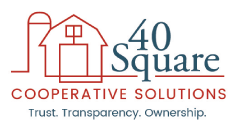Saving lives: What ag producers need to know about the COVID-19 vaccine
With a single-dose vaccine now awaiting emergency approval, COVID-19 vaccine production and distribution is expected to increase in the coming months. The Biden administration also announced it will purchase 200 million more vaccine doses from Pfizer and Moderna by July, increasing the chances that all Americans could have the chance to be inoculated by mid-summer.
As the vaccines become more available, health experts are urging the public to trust the science, verify facts before sharing social media posts and get vaccinated. AgriSafe hosted a webinar for producers to assure the agriculture community of the efficacy and safety of the vaccines. AgriSafe Executive Director Natalie Roy hosted the webinar, and encouraged producers to share their vaccine experiences with friends and community members.
“There’s a lot of information and fear out there,” Tulane University Associate Professor Lisa Morici said during the webinar. “Vaccines get a bad rap because of the misinformation. Please remember, it’s so much safer to get the vaccine than it is to get COVID.”
Agricultural producers are considered “essential workers,” and the Center for Disease Control recently announced it would allocate a limited supply of the COVID-19 vaccine to seasonal/migrant agricultural workers. Johnson & Johnson submitted to the Food and Drug Administration for emergency approval for its vaccine, which requires just a single dose and is 72% effective. If approved, the Johnson & Johnson vaccine would be the third COVID-19 vaccine approved by the FDA. A fourth vaccine, AstraZeneca’s two-shot vaccine, may be available later in 2021. Morici said she’s encouraged by AstraZeneca’s data because it’s shown to block the virus, which would then prevent transmission, although early indications show it may be less effective against the so-called South African variant.
“All of these vaccines are great at preventing illness and death,” Morici said. “They’re going to help us save lives and get to herd immunity.”
Minnesota’s COVID-19 Community Vaccination Program is focused on increasing vaccination capacity across the state while preparing for the future when the state has more supply available. These clinics will initially serve adults 65 years of age or older and prekindergarten through grade 12 educators, school staff and childcare workers.
Anyone who is 65 years of age or older, an educator or a childcare worker is eligible to receive the COVID-19 vaccine today. To find a vaccine in your area, visit Minnesota Department of Health’s “Find My Vaccine” page at mn.gov/covid19/vaccine/find-vaccine/index.jsp. For more vaccine information, visit cdc.gov.
“It’s important to get vaccinated before (the virus) spreads and mutates any further,” Morici said. “If we implement these vaccines, we can really save lives.”
The COVID-19 vaccine itself will be covered 100% by the 40 Square Health Plan. However, there may be an office visit or administrative fee which may fall to your copay, deductible or coinsurance.
Debunking COVID-19 myths
– The vaccines do not integrate into your DNA.
– The vaccines do not cause female fertility.
– The vaccines do not cause COVID-19.
– The vaccines do not carry microchips to track you.
– The vaccines do not linger in the body.
– The vaccines were on an atypical development schedule, but did not affect the quality and safety of the vaccine.

